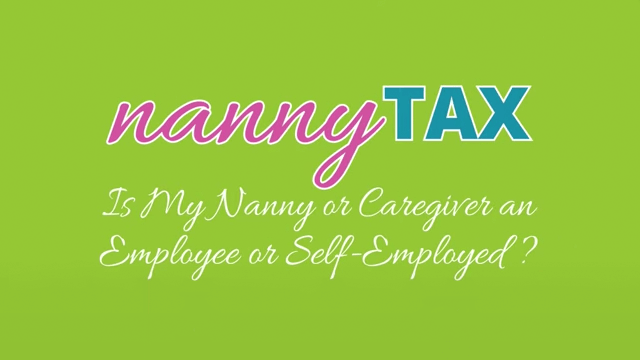
Top Considerations When Assessing a Caregiver for Your Aging Parent
Looking to hire a caregiver to support your aging parent?
Worried you don’t know what you should be asking to make sure you find a caregiver you can trust? What are some of the signs that you’ve found someone reliable, whether hiring through an agency or independently?
In this blog, we provide the top considerations to cover when assessing your needs and comparing care alternatives. You will likely find that as you start asking questions, you’ll have many more but this checklist has been put together from our experiences and should be a good starting point for the essentials.
Consider what functions are must-haves vs. nice-to-haves to make sure your caregiver’s time is optimally spent with your parent. And if the agency or caregiver isn’t thorough with their side of the questions, that could be a warning sign to consider someone else.
Assessing Your Parent’s Needs
Below is a checklist by category to help you frame up your parent’s needs for the caregiver. All of these needs should be outlined and agreed upon to set expectations from the beginning.
PERSONAL CARE
Will your parent need help…
- Getting in and out of bed
- Brushing teeth
- Preparing meals/eating
- Getting dressed
- Medication reminders/administering medicine
- Companionship (being there to listen and engage emotionally)
- Having diapers changed
- Walking and/or transferring to the couch, bed, toilet, bedside commode, or shower
- Showering/bathing
BASIC HOUSEKEEPING
Will you need help with any of the following common household tasks? And how often do you expect them to be done?
- Sweeping floors/vacuuming
- Mopping floors
- Cleaning kitchen countertops
- Wiping small countertop appliances (e.g. toaster, microwave, blender)
- Filling, running and emptying the dishwasher
- Inspecting and removing the spoiled/old food from the fridge (depending on who is doing the groceries, do you want them to take a picture of the inside contents of the fridge and freezer at the end of each week so you know what is needed for the next grocery trip?)
- Taking out the trash/recycling/composting
- Cleaning the bathroom (mirrors, disinfecting the toilet, shower, sink)
- Doing the laundry (washing, drying, folding, ironing, and putting away clothes)
- Dusting around the home
- Changing bed linens
- Watering plants
- Feeding/walking any pets
COOKING
Make sure the expectations around meals are clear as this can be time-consuming.
- Will they need to cook for your parent?
- What types of food should they be making?
- How much time do you want the caregiver to spend making meals?
- Should they also plan snacks?
- Will you provide a pre-planned menu and if yes, how rigidly do they need to follow it? I.e. how much freedom can they have to cook what they’re comfortable with as long as they use the ingredients you’ve provided?
- Who will do the groceries?
- Are there any specific textures required (e.g. does the food need to be blended/mashed, how much chewing is ok)?
- Are there any allergies?
- Do they need to prepare any extra meals that may be served when they aren’t working? E.g. if they work Monday-Friday, what happens to the meals on the weekends?
APPOINTMENTS
What are your expectations around doctor’s appointments?
- If you need the caregiver to help with doctor’s appointments, do they have their own car and are they strong enough to help your parent in and out of the car? How will you cover the mileage/insurance?
- Can their car fit a wheelchair or walker?
- If their vehicle won’t work for your parent’s condition, who will coordinate a specialized transit service or call for a ride sharing service (e.g. Uber)? Is using public transit a possibility? Will you provide the caregiver money in advance for transportation?
- How will they communicate the doctor’s notes to you?
SPECIALIZED SERVICES
Do you need the following skilled help which many general caregivers may not be able to do? If yes, you may need to find extra specialized support.
- Physical or occupational therapy
- Injections
- Administering medication
- Haircutting
- Nail cutting
- Taking vital signs
- Massages
- Heavy housework (e.g. wiping down baseboards, yard work, shoveling snow, etc.)
MISCELLANEOUS
- “Tech” support. Does your parent have friends or relatives to call or video chat with? And can the caregiver help set up these connections (e.g. turning on a tablet/computer or using a smartphone to call via Skype/Zoom, using long-distance calling cards, etc.)?
Now that you have your parent’s basic needs worked out, the section below is what you should expect of a competent agency/caregiver.
Process you want to make sure you or the agency follows or considers:
- An initial screening call with you to assess your parent’s general needs so that they can provide a budget and to know if their services will fit your parent’s situation
- They should arrange for an interview either virtually on video (because of COVID) or in-person with the appropriate social distancing guidelines (wearing a mask, keeping 6 feet apart)
- An assessment of the home set-up (if and where grab bars are located), how a wheelchair can be maneuvered around the place, any obvious tripping or falling hazards
- What process do they have for providing regular status updates to you? How should they communicate with you during the day (text message, does the agency have a platform where you have to log in, who else among your family needs to have access to stay in touch?)
- Process for screening caregivers and any security clearance/insurance
- It’s possible that your parent is currently on a waitlist for long-term care or may have a health condition that can deteriorate suddenly. What is the cancellation policy for services or how much notice do you have to provide if you no longer need their services?
- For agencies, Is there a deposit before services start and how much is it? What are the conditions about getting the deposit refunded?
- What happens if your parent doesn’t like the caregiver? Will the agency help you find another one? What is your backup plan if the caregiver is an independent provider?
Questions you want to make sure the agency/caregiver asks (if you haven’t already volunteered the information while briefing them):
- Physical and mental health history of your parent including current health condition and medications
- Personality of your parent (introverted/extroverted, general temperament, etc.)
- What are your parent’s interests? What topics get them interested and will make them excited to engage and hold a conversation? Are there any topics they should avoid?
- Do they like to watch TV/movies or listen to music? And if yes, what are their favourite shows/types of music?
- Who are the family members or friends that your parent communicates with regularly and how can they help facilitate those conversations?
- Expectations for physical support and emotional support. What degree of physical activity do you want for your parent? Is supervising walking for 10-15 minutes a day good or not? Do you want the caregiver to make sure your parent gets some fresh air each day? How do your expectations change in the winter? Do you want the caregiver to engage in any specific games (e.g. cards or puzzles) with your parent? Do you want them to spend time just listening and asking questions?
- Who should they contact first and second in case of an emergency and by what means (phone call, text, email, etc.)?
Finding the right caregiver can be challenging and besides the checklist of questions we’ve covered, individual chemistry matters a lot. You want to make sure that your parent is comfortable with this new household member who will be spending significant time with them. Check in with the caregiver and your parent more frequently at the beginning of the relationship so that adjustments can be made promptly.
If you end up hiring a caregiver part-time or full-time, remember that you are now an employer. And as an employer, you will have full payroll responsibilities. Read our blog about how to avoid the unexpected costs of hiring a nanny so that the little-known financial considerations don’t end up costing you money. And if you need help with your caregiver’s payroll, please reach out to us and we’d be happy to help. Managing your parent’s caregiving situation is already a lot juggle without the extra stress of managing domestic payroll.










